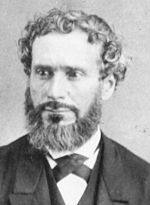Charles Grafton Page, Date of Birth, Place of Birth, Date of Death
TweetCharles Grafton Page
American scientist
 Date of Birth: 25-Jan-1812
Date of Birth: 25-Jan-1812
 Place of Birth: Salem, Massachusetts, United States
Place of Birth: Salem, Massachusetts, United States
Date of Death: 05-May-1868
Profession: physicist, inventor
Nationality: United States
Zodiac Sign: Aquarius 
About Charles Grafton Page
- Charles Grafton Page (in Salem, Massachusetts January 25, 1812 – May 5, 1868 in Washington, D.C.) was an American electrical experimenter and inventor, physician, patent examiner, patent advocate, and professor of chemistry. Like his more famous contemporaries Michael Faraday and Joseph Henry, Page began his career as an astute natural philosopher who developed innovative work with natural phenomena through direct observation and experimenting.
- Toward the later part of their careers, the science of the day had moved on to a more mathematical emphasis in which these scientists did not participate. Through his exploratory experiments and distinctive inventions, Page developed a deep understanding of electromagnetism.
- He applied this understanding in the service of the US Patent Office, in support of other inventors, and in pursuing his own ill-fated dream of electromagnetic locomotion.
- His work had a lasting impact on telegraphy and in the practice and politics of patenting scientific innovation, challenging the rising scientific elitism that maintained 'the scientific do not patent'.
Read more at Wikipedia
See Also
- Famous People's Birthdays on 25 January, United States
- Famous People's Birthdays in January, United States
- Famous physicist's Birthdays on 25 January, United States
- Famous physicist's Birthdays in January, United States
- Famous inventor's Birthdays on 25 January, United States
- Famous inventor's Birthdays in January, United States

